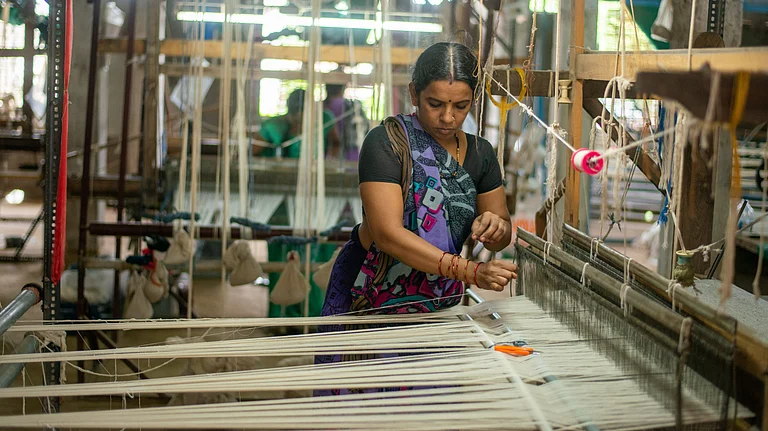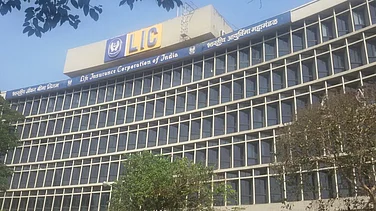Fueled by the transformative power of technology, India is poised for a socio-economic revolution. The internet is rapidly reshaping every facet of life, from how we connect to how we run businesses. This digital transformation is particularly evident in the e-commerce sector, which is rapidly transforming the Indian economic landscape. Micro, Small, and Medium Enterprises (MSMEs), the lifeblood of the Indian economy, are being empowered by the democratizing force of the e-commerce marketplace.
These marketplaces are dismantling traditional barriers to market access, propelling MSMEs to unprecedented heights in the global marketplace. This digital revolution is not just reshaping business dynamics; it's catalysing economic empowerment for MSMEs, allowing them to expand their reach and propel themselves towards a brighter economic future.
A level playing field
Traditionally, establishing a physical presence in prime locations or securing shelf space in major retail chains is a significant hurdle for MSMEs. Imagine a skilled woodworker in a remote village struggling to sell their crafts beyond local customers or a bakery in a small town unable to compete with established brands in larger cities. E-commerce marketplaces like Amazon have emerged as a powerful equalizer, which has helped many MSMEs overcome these barriers. By offering a user-friendly interface and access to a vast network of suppliers, the e-commerce marketplace has helped to simplify purchasing for customers, reduce operational costs for sellers, and enhance sellers’s efficiency. Due to this change, MSMEs are now able to showcase their products to a national and even global audience.
Driving India's e-commerce revolution
E-commerce marketplaces offer MSMEs access to a suite of technological tools that were once beyond their reach, like those offered by Amazon. These tools can streamline operations, manage inventory, and facilitate online payments. But the benefits go far beyond simple access. MSMEs are not just passive recipients of these technologies; they are actively contributing to innovation within the e-commerce space. By utilizing these tools creatively and adapting them to their specific needs, MSMEs are developing new and efficient ways to sell their products. This fosters a dynamic ecosystem where innovation thrives, leading to job creation and inclusive economic growth.
Simplified taxation Regimes
Hon'ble Prime Minister Shri Narendra Modi's vision of a 'Viksit Bharat' (Developed India) relies on empowering Micro, Small and Medium Enterprises (MSMEs). The government is utilizing India's expanding digital infrastructure to achieve this goal and acknowledging the transformative power of e-commerce. Digital marketplaces help MSMEs enter the national and global marketplace. Supporting this vision, Hon'ble Finance Minister, Smt Nirmala Sitharaman, emphasized the importance of strong digital frameworks in the Interim Budget 2024. These frameworks extend beyond just infrastructure and include initiatives that empower MSMEs to take part in the e-commerce revolution.
Simplified tax regimes are another pillar of this strategy. Streamlined policies ease compliance burdens and encourage technology adoption, including e-commerce marketplaces and digital marketing tools. This empowers MSMEs to expand their digital footprint, which ultimately contributes to economic resilience, job creation and a thriving 'Vikasit Bharat'.
The road ahead: Building a robust digital infrastructure
The e-commerce revolution has undeniably empowered India's MSMEs, dismantling geographical limitations, streamlining operations, and fostering a culture of innovation. However, to fully unlock their potential and propel them towards becoming a dominant force in the global digital economy, a collaborative effort is required.
Building a robust digital infrastructure is imperative. This includes ensuring reliable and affordable internet connectivity across the country, especially in remote areas. By bridging the digital divide, MSMEs in every corner of India can participate in the e-commerce boom. Additionally, fostering affordable and efficient logistics solutions is crucial. Streamlined delivery networks will not only enhance customer satisfaction but also allow MSMEs to compete effectively on a national and even global scale.
Beyond infrastructure, promoting digital literacy is equally important. Educating entrepreneurs on leveraging e-commerce platforms, managing online stores, and utilizing digital marketing tools will empower them to thrive in the online marketplace. Similarly, fostering digital literacy among consumers will create a more informed and engaged customer base, ultimately benefiting both MSMEs and the e-commerce ecosystem as a whole.
By seizing these opportunities and addressing challenges collaboratively, stakeholders – the government, e-commerce platforms, MSMEs themselves, and consumers – can propel India's MSMEs towards a brighter economic future. This collaborative approach will not only empower these businesses but also solidify India's position as a major player in the global digital economy. As MSMEs flourish online, they will contribute significantly to India's economic growth, job creation, and overall prosperity. The e-commerce revolution presents a golden opportunity, and by working together, India can ensure its MSMEs not only keep pace but become leaders in the digital age.
(The author is Head of Sales at Amazon India. The views belong solely to the author)


























